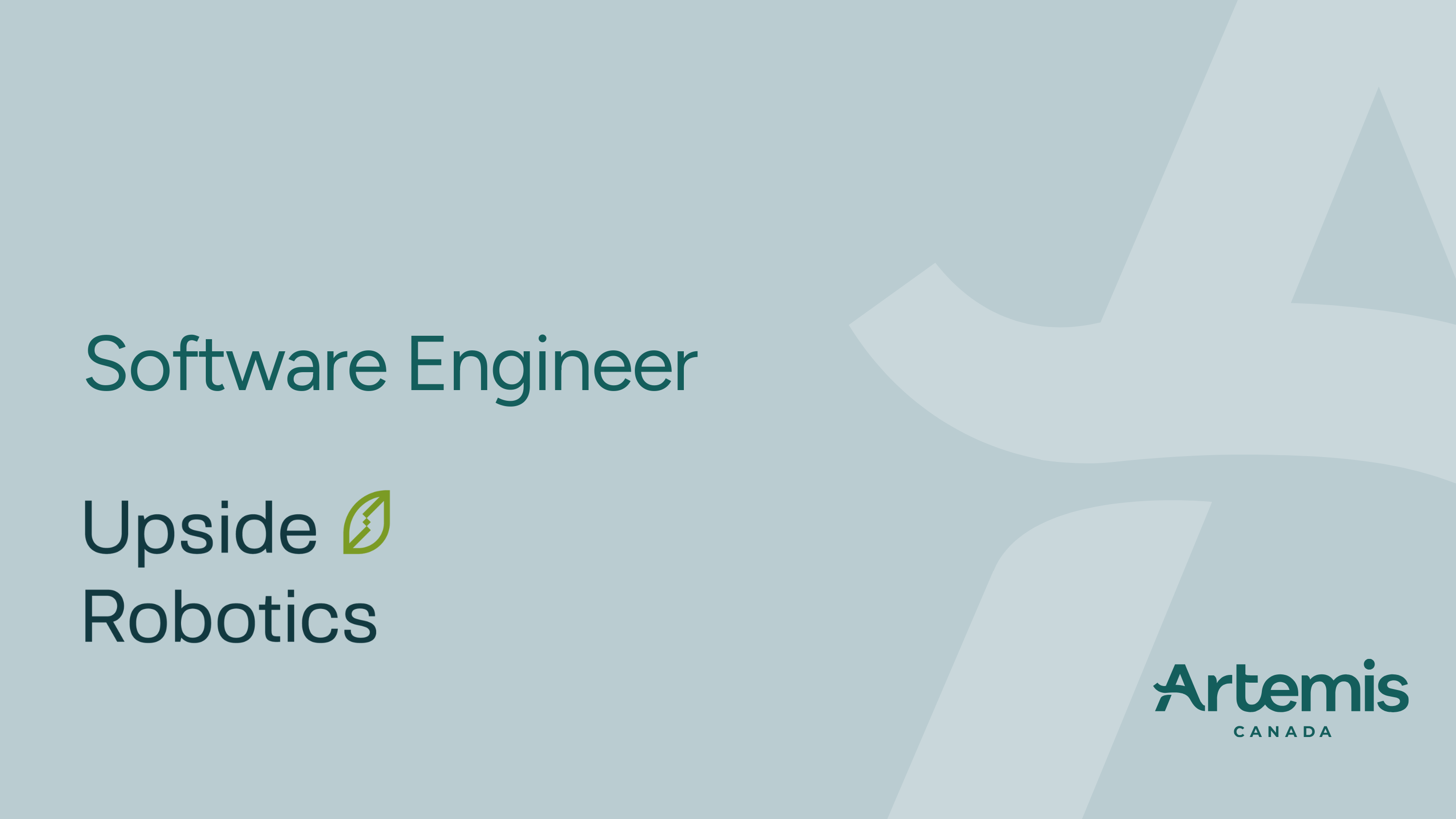Who Is Upside Robotics & How Are They Changing the World
Upside Robotics is transforming modern agriculture with AI-powered, autonomous field robots that deliver water and nutrients directly to plant roots; cutting fertilizer waste, improving yields, and reducing environmental impact. Founded in Kitchener-Waterloo, they’re backed by world-class investors and already partnering with Ontario farms to prove what sustainable, high-efficiency farming looks like in practice.
How Will I Make An Impact?
Join as an early software engineer to make our robots reliable in real fields, day after day. You’ll ship autonomy and systems code, then prove it under dust, mud, sun, and spotty connectivity.
- Build and maintain ROS2 services, nodes, and tooling (Ubuntu/Linux)
- Own localization, mapping, and controls for row-following and maneuvering
- Integrate sensors/actuators; debug real-time issues on NVIDIA Jetson + microcontrollers
- Implement telemetry, logging, and diagnostics for low-bandwidth rural networks
- Run fast field loops: test → instrument → fix → redeploy until it works
How Do I Know If This Is For Me?
You like shipping code that moves real machines, and fixing them when reality fights back.
- You’ve built on ROS/ROS2 and enjoy C++/Python in Linux
- You’re curious, practical, and comfortable debugging in the field
- You think in systems (SW ↔ sensors ↔ actuators ↔ operators), not silos
Our Ideal Candidate Looks Like:
We’re not looking for perfect resumes, we’re looking for builders. You’ll thrive here if you bring:
- 2–6+ years in robotics or mobile autonomy (indoor or outdoor), or equivalent high-impact projects
- Strong in C++ and/or Python; confident with Linux tooling, containers, git, CI
- Hands-on with sensor fusion (EKF/UKF), PID/controls tuning, and real-time profiling
- Experience integrating cameras/IMU/GNSS; buses like CAN, I2C, UART
- Nice-to-have: firmware/PCB comfort
Location and Working Model:
This role is based in Kitchener-Waterloo. The team works together in-office at least 4 days per week during the off-season. From May through October, you’ll also spend regular time in the field at farms across Ontario (Owen Sound → Sarnia corridor).
Because agriculture is seasonal and weather-driven:
- Hours are less predictable in the growing season. Sunny days mean long days in the field; rainy days mean downtime.
- Off-season (Nov–Apr) looks more like a standard 9–5 schedule focused on architecture, simulation and readiness.
- You should genuinely enjoy being outdoors - walking fields, troubleshooting robots, and seeing your code impact crops!
We understand, accept, and value the differences between people of different backgrounds, genders, sexual orientations, ages, beliefs, and abilities. We are happy to make any accommodations you may need throughout the interview process. We aim to create an inclusive environment and encourage diverse individuals to apply.
The Process:
- Screening conversation with Carly at Artemis Canada
- Intro conversation with the CEO (values, culture, motivation)
- Technical deep dive with the Founding Software/Autonomy Engineer (your experience and problem-solving)
- Hands-on/whiteboard session (debug or design exercise)
- Final meeting (onsite/shop/field visit where possible)
Your Artemis Canada partner, Carly, will work closely with you throughout every step of the process.
We’d love to hear from you - even if you don’t meet 100% of the requirements! Send a note to carly@artemiscanada.com if you or someone you know is interested!

